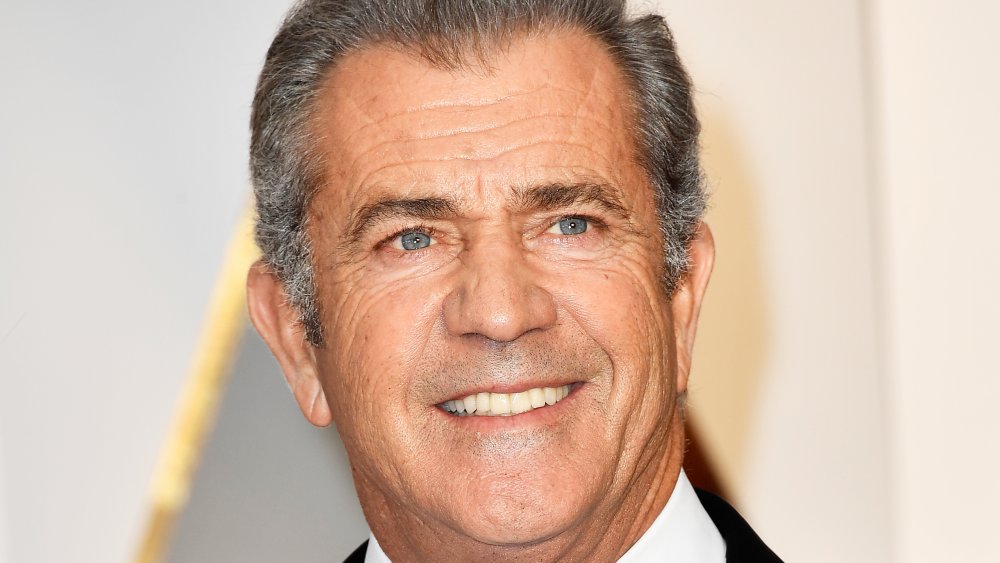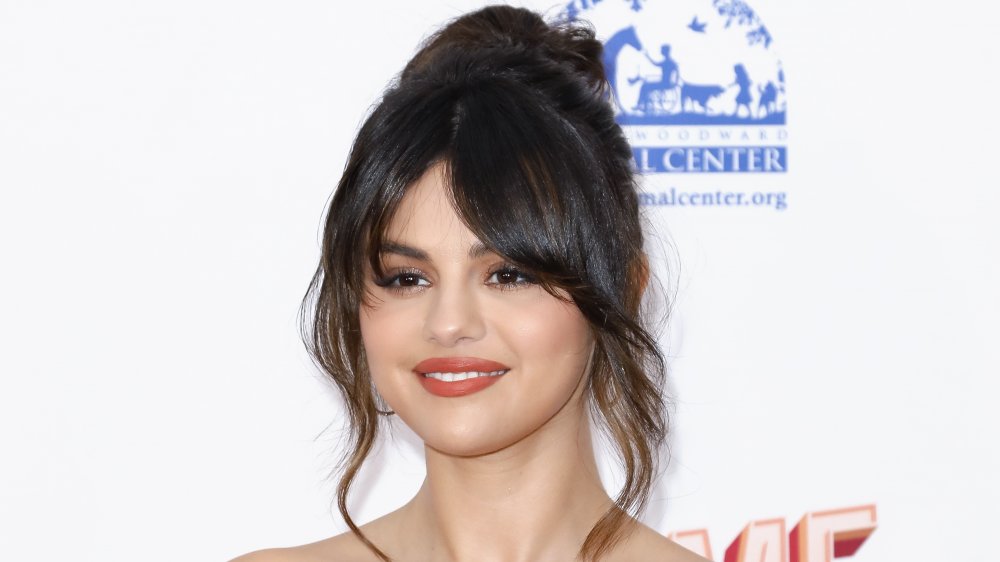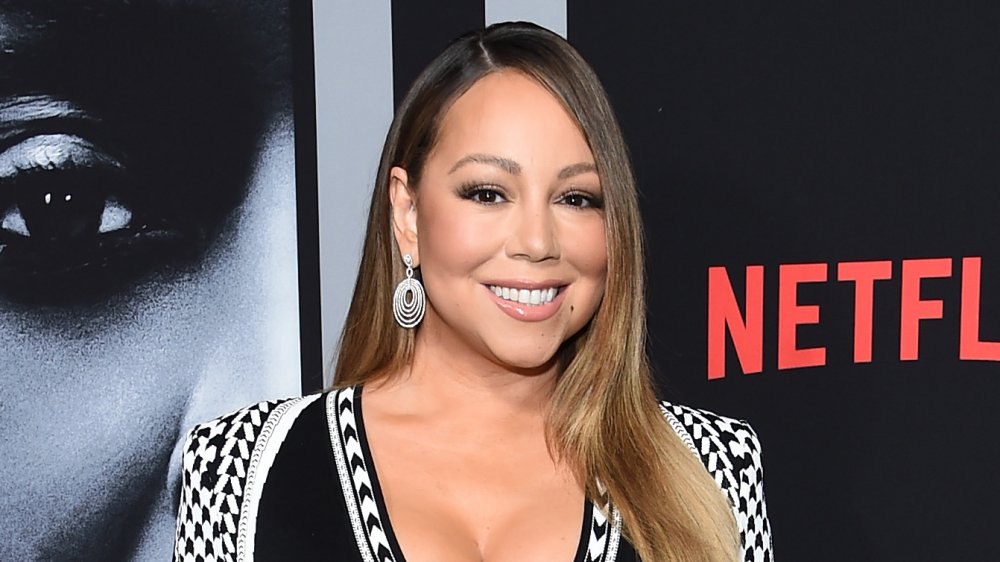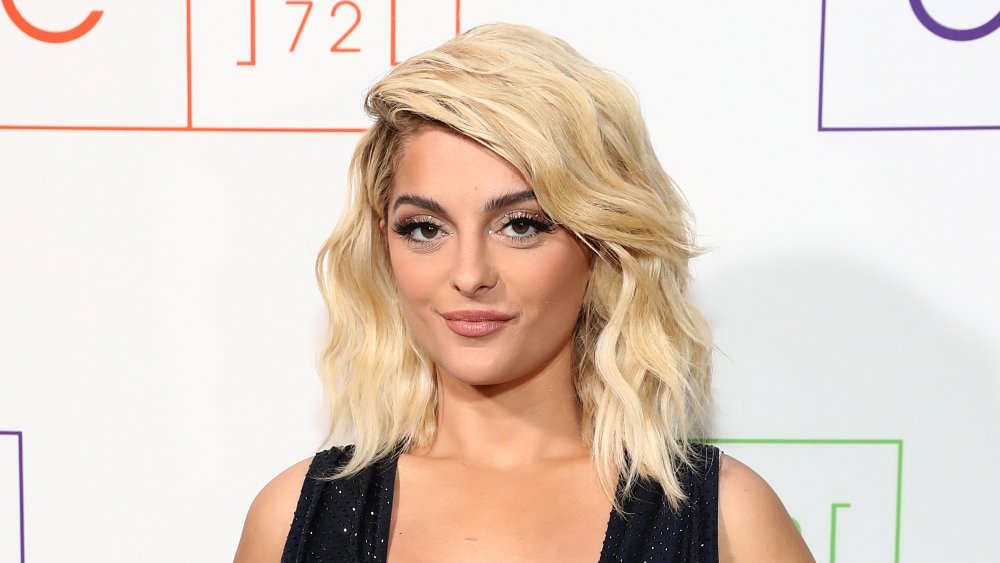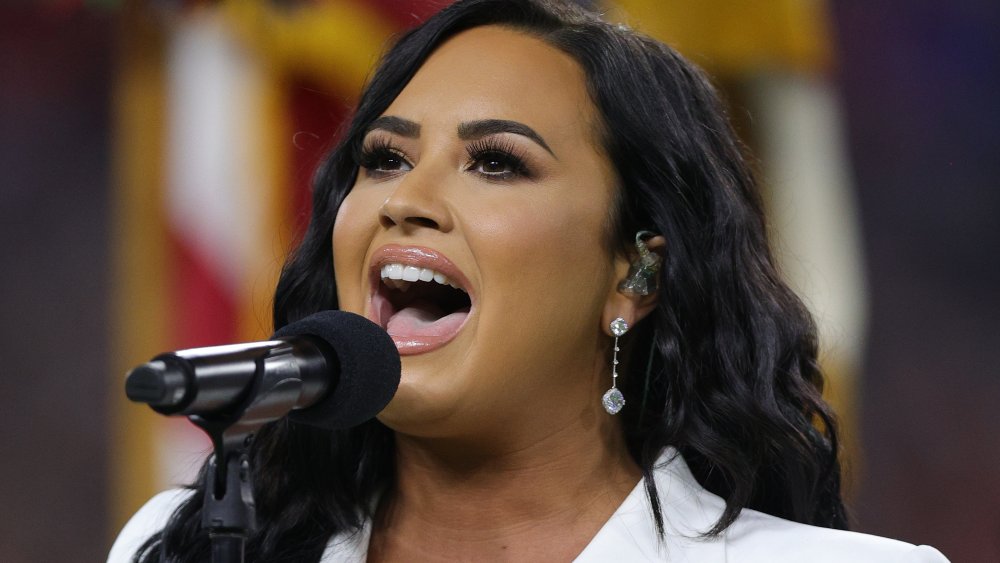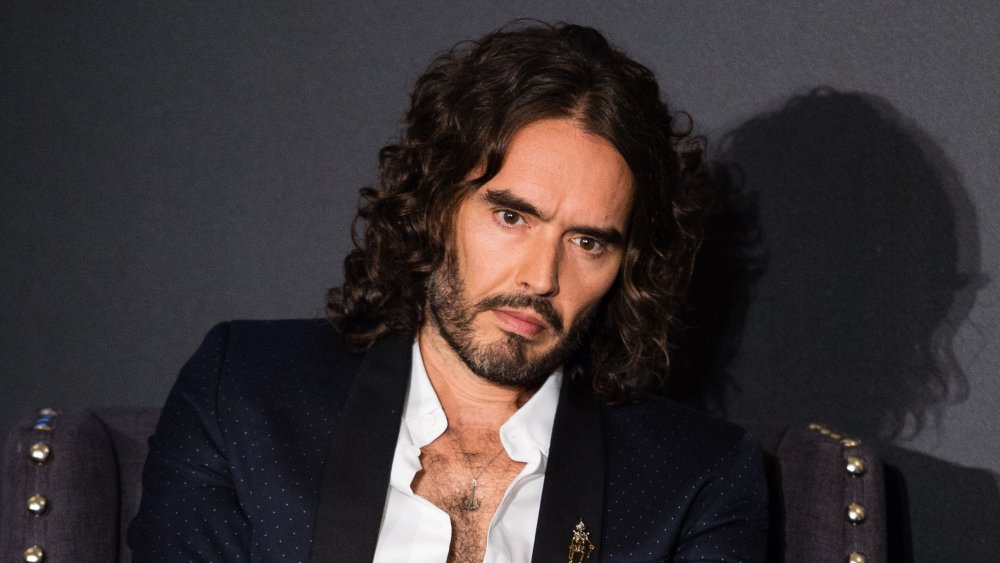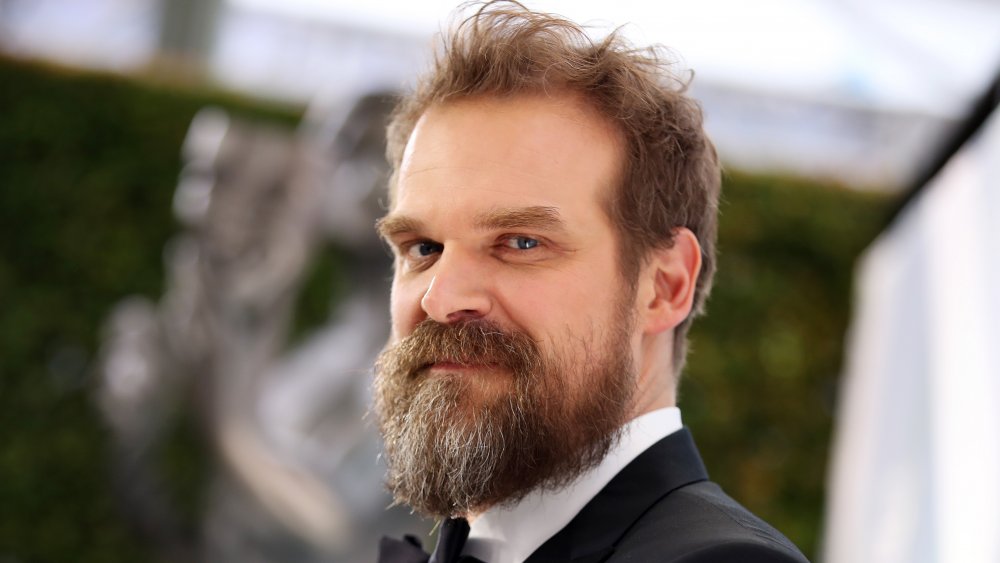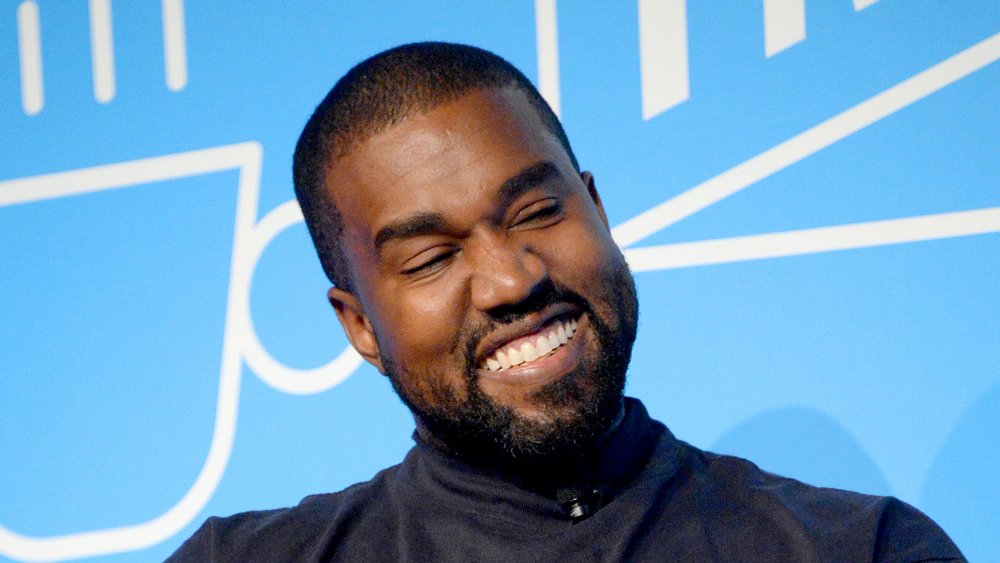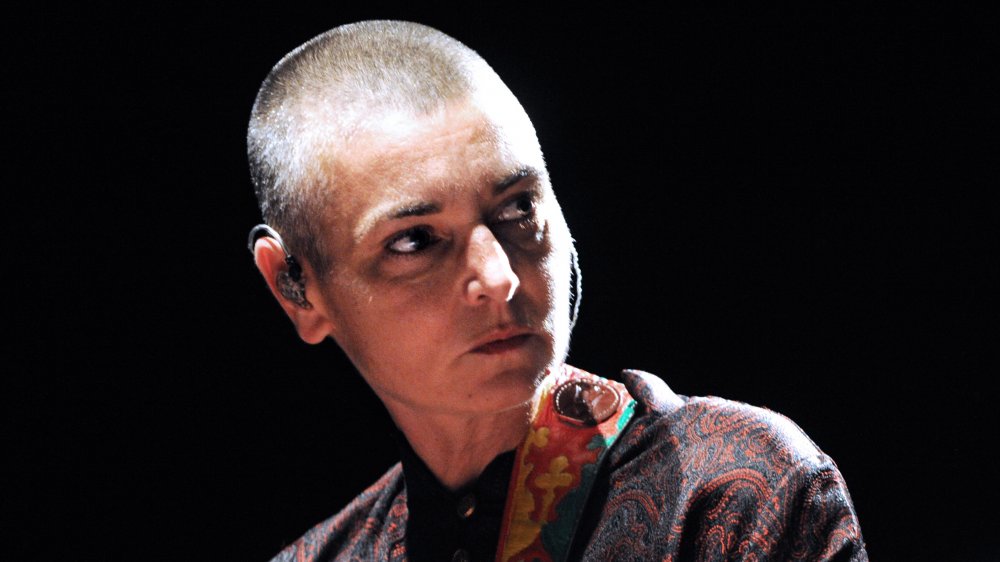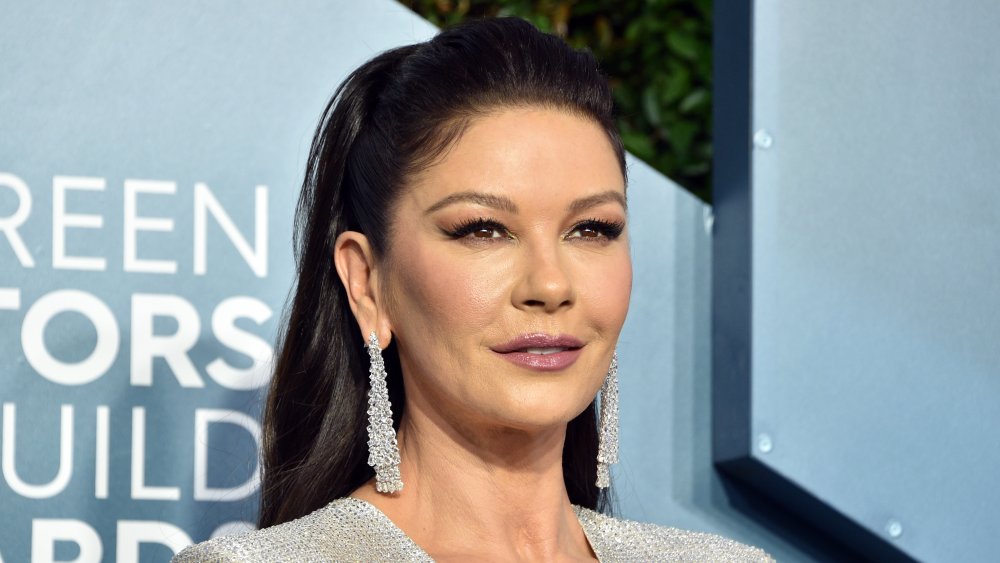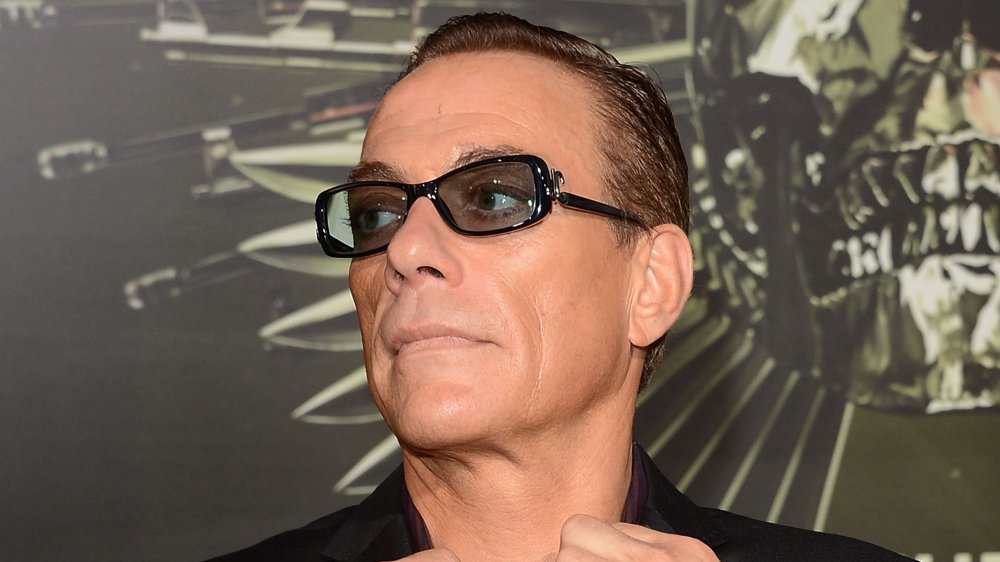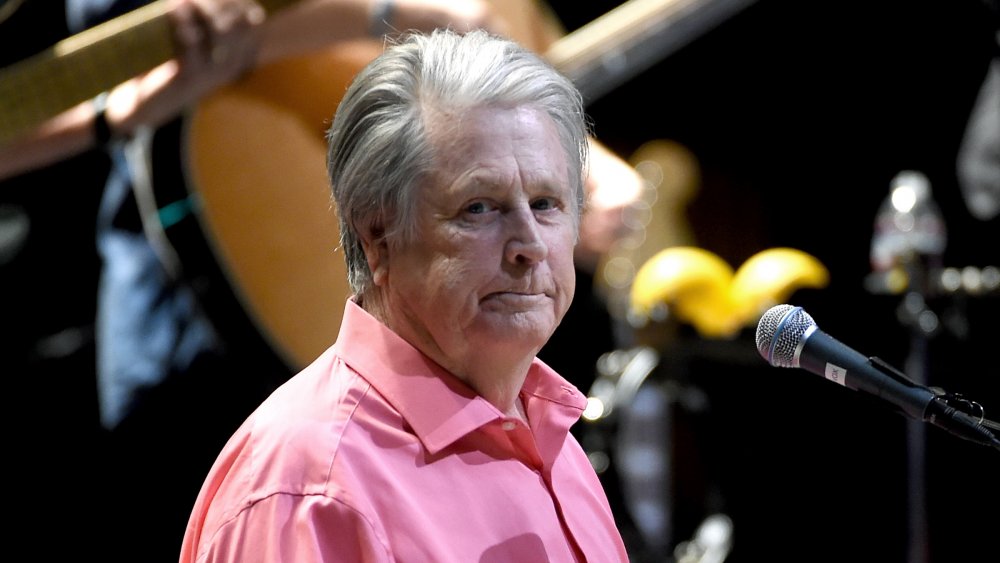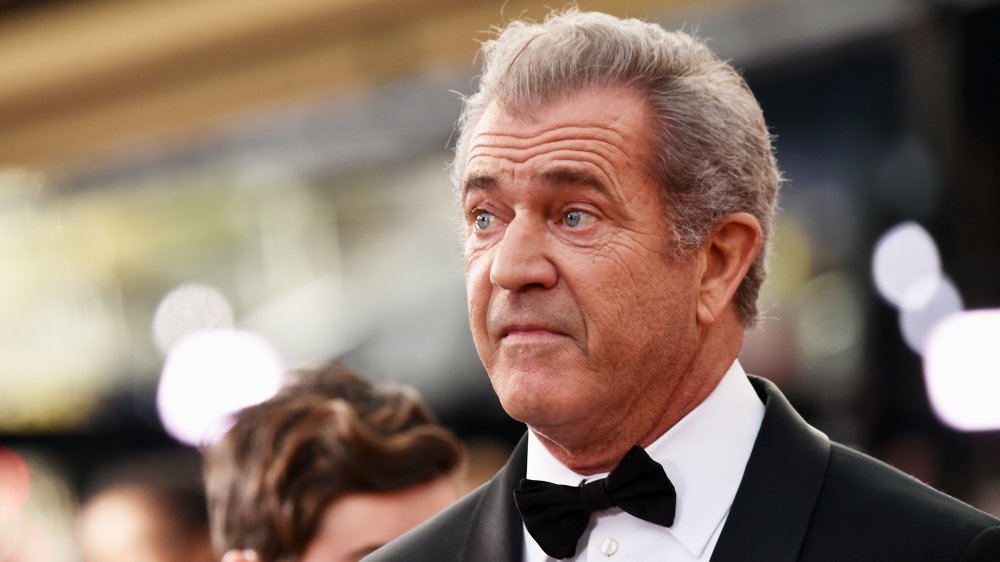Stars Who Have Revealed Their Bipolar Diagnosis
We may receive a commission on purchases made from links.
Hollywood hasn't exactly been the friendliest to those with mental illnesses throughout the years. "Cinema has long been bad news for the mentally ill, typically representing them as the likes of Psycho's Norman Bates," wrote The Guardian in 2010, adding, "Film-makers have treated them as conveniently dehumanized as useful monsters, inviting cinemagoers to assume they should be feared, shunned and confined."
It's perhaps because of Tinseltown's poor portrayal of those diagnosed with mental disorders that many fail to seek help. As the Association for Psychological Science explains, while "over 60 million Americans ... experience mental illness in a given year," only 40 percent of individuals receive treatment — due to the stigma and prejudice.
However, it looks like times are finally changing, and A-listers are helping to spread awareness that it's okay to seek help by opening up about their own mental health struggles. In 2018, late-night host Stephen Colbert revealed his longtime battle with anxiety, for example, while singer LeAnn Rimes has long been open about how her struggle with anxiety, stress, and depression led to her entering an in-patient treatment facility in 2012. While we certainly have a long way to go in terms of normalizing all aspects of mental health, celebrities are slowly starting to speak out about having bipolar disorder, too. Let's find out more about stars who have revealed their bipolar diagnosis.
Selena Gomez believes knowledge is a useful tool against stigma
After almost a decade of non-stop relationship drama with now-ex Justin Bieber and her own set of health concerns, 2020 was Selena Gomez's year. As NPR put it, the starlet has "battled Lupus, depression, and anxiety ... all while millions followed along on social media." Throughout it all, Gomez has come out on top, releasing her album, Rare, in January 2020 to glowing reviews.
With her powerful music and acting careers to uplift her, it seemed as though The Dead Don't Die actress was finally ready to speak out about another illness she'd been struggling with: bipolar disorder. During a candid interview on Miley Cyrus' Instagram Live chat show, Bright Minded, in April 2020, Gomez revealed that she had discussed her condition with experts at McClean Hospital near Boston: "After years of going through a lot of different things, I realized that I was bipolar, and so when I go to know more information, it actually helps me," she said, before wisely adding, "It doesn't scare me once I know it, and I think people get scared of that, right?"
As it turns out, Gomez suspected that some of her family members suffer from the same mental disorder: "I've seen some of it even in my own family where I'm like, 'What's going on?' ... I'm from Texas, and it's not known to talk about your mental health."
Mariah Carey revealed her bipolar diagnosis because she was living in 'isolation'
Mariah Carey's battle with bipolar disorder has lasted decades, and many times, the public has simply brushed her off for her eccentric diva behavior. As Demi Lovato once shaded the Butterfly hitmaker on Instagram (via Page Six), "Mariah is a legend and so talented but constantly disses people ... Extremely talented? Yes. Superhuman? Possibly. Unnecessarily rude? Absolutely."
While it's easy to dub Carey as "rude" and call it a day, perhaps we should all take a moment to absorb the pop starlet's mental health battles, too. Opening up to People in 2018, Carey revealed she received her bipolar diagnosis in 2001, after a "physical and mental" breakdown. "I didn't want to believe it," the "Fantasy" singer dished, adding that she finally decided to get treatment after "the hardest couple of years [she's] been through."
It looked like finally, after living in secret about her mental illness for years, Carey was ready to speak out without any shame. "I lived in denial and isolation and in constant fear someone would expose me," she said, before adding, "I sought and received treatment, I put positive people around me and I got back to doing what I love — writing songs and making music."
Bebe Rexha is using her bipolar diagnosis to help her fans
Since breaking into the music business in 2014, Bebe Rexha has been a role model for body positivity. "I was nominated for two Grammys, and it was a big moment," the pop star revealed on The Jonathan Ross Show in 2019, adding that many fashion designers didn't want to dress her for the event as they claimed she was "too big." She continued, "It hurt me because I've struggled with my weight all my life ... but you also want to be healthy."
It's not just body positivity that the "Last Hurrah" crooner wants to talk about: Rexha has also become a mental health advocate. Opening up about living with bipolar disorder in a 2020 interview with Self, she explained, "It did kind of f**k me up for a little bit ... I didn't want to think there was something wrong with me." The starlet had previously publicly chatted about having bipolar with her fans, having announced it on Twitter in 2019. While speaking to Self about this decision, Rexha dished, "I felt like me opening up to my fans was me finally saying, 'I'm not going to be imprisoned by this.' And maybe it'll make somebody not feel imprisoned, in that moment."
Demi Lovato has struggled with her mental health
Demi Lovato has had a rocky time in the spotlight since her Disney-era fame. "Everything happened so fast," she said in her 2017 documentary, Simply Complicated, adding, "Looking back, I think that it was a lot for anyone, let alone a kid." Tragically enough, the starlet started cracking under the pressures of fame: hospitalized for overdoses, she battled drug and alcohol addictions and struggled with a harmful eating disorder.
Throughout her battles, however, the "I Love Me" songstress has become an advocate for mental health, especially after receiving her bipolar diagnosis. According to Women's Health, Lovato first discovered she had bipolar disorder in 2011, having entered rehab "after years of struggling with bulimia, cutting, and drug addiction."
By 2015, Lovato became the spokesperson for a campaign called Be Vocal: Speak Up for Mental Health. Chatting to Extra about her role as an ambassador the following year, the "Sober" hitmaker explained, "Be Vocal is an initiative that has come together to raise awareness of mental health in America." Lovato added, "When I was 18, I was diagnosed with bipolar disorder, and I did a lot of opening up and talking about that back then, and so it was a natural decision for me to come together with Be Vocal and decide to make a difference."
Russell Brand is trying to spread mental health awareness
Comedian Russell Brand suffered a rough patch with some pretty destructive tendencies in his life. As The Guardian put it, the Arthur actor is "a 'reformed heroin and crack addict' and 'sex addict,' who is quite open about a druggy degenerate past that involved ... mental illness."
Growing up, "Brand was suspected to be bipolar and hyper-manic, though he was only treated for depression." By the time he began doing stand-up comedy, his fame "coincided with an escalation of his drug problems," or as Brand put it, "I was wrapped in a duvet of heroin." Eventually, it was the comedian's agent who sent him to rehab, and Brand has remained sober ever since.
In more recent years, Brand has turned a new leaf, trying to help others who suffer much like he did. The celeb has written books on recovery, has a podcast he calls Under The Skin, and a YouTube channel where he's discussed politics, spirituality, and mental health. Brand has even brought attention to fellow celebs who have been diagnosed with bipolar disorder, such as Sinead O'Connor. Most importantly, the A-lister is now enjoying a quiet life with his family in England. "I've never had domesticity before," Brand told The Guardian in 2017. "Most of my life has been an extension of the grandiose idea of what glamour would look like."
David Harbour copes with his bipolar diagnosis with cheeseburgers and cigarettes
David Harbour's love of acting goes all the way back to his childhood. As Dartmouth Alumni Magazine revealed, the Stranger Things star first graced the acting stage in kindergarten — playing the Tin Man in his school's production of The Wizard of Oz. "He not only learned his own lines perfectly," mused Harbour's father, Ken, to the outlet, "but he learned everyone else's too." Unfortunately for the actor, something was brewing underneath his inquisitive demeanor, and he quickly turned to alcohol abuse as a teen.
As it turns out, his substance-taking problem could have been a result of an even bigger issue. Speaking on Marc Maron's WTF podcast (via Self) in 2018, Harbour revealed he had a "manic episode" which caused him to be checked into a mental facility by his parents — followed by a bipolar diagnosis. "[It's] really, really not as fun as you think it is," Harbour explained of the facility, adding that it's that same institution that put him on prescription drugs for his bipolar disorder. "I've been medicated bipolar for a long time, and I've had problems going on and off. I've had a struggle."
Throughout it all, it looks like Harbour has found his own way to deal with the diagnosis: "I need to just eat a cheeseburger, smoke cigarettes." We're sure Chief Hopper would do the same.
Kanye West's bipolar diagnosis isn't as simple as you think
Kanye West surprised the world in June 2018 with the release of his album, Ye, which showcased the following sentence on the album cover: "I hate being Bi-Polar it's awesome." The rapper also got real about his mental health on the song, "Yikes," calling his disorder his "superpower." Per People, West raps, "Ain't no disability, I'm a superhero." So, is the outspoken rapper truly bipolar?
Ye seemed to think so, and he even spoke to David Letterman about it on his Netflix series, My Next Guest Needs No Introduction (via Newsweek). "If you don't take medication every day to keep you at a certain state, you have a potential to ramp up," West revealed. If that's not all, the "Famous" rapper also appeared on Jimmy Kimmel Live! to further drive the point home in August 2018: "I think it's important for us to have open conversations about mental health."
Well, all things considered, it's pretty odd that a few months later, in October 2018, Yeezy backtracked on some of his statements. Meeting with President Donald Trump, West told a group of reporters in the Oval Office, "I was diagnosed with bipolar disorder, I was connected with a neuropsychologist ... He looked at my brain ... I actually wasn't bipolar; I had sleep deprivation." Hmm. We'll let you decide.
This scuttlebut proved that mental health stigma is going away
Is there a time when Sinead O'Connor's life in the spotlight hasn't been controversial? Probably not, but an incident in 2012 sent fans into a frenzy of worry about the "Mandinka" crooner.
O'Connor originally revealed her bipolar diagnosis in 2007, during a chat on The Oprah Winfrey Show (via The Star). By 2012, the singer canceled all tours she had scheduled that year due to her illness, and also publicly sought out help on Twitter, asking her fans to recommend a psychiatrist. Things got really tense the following year when Miley Cyrus released her "Wrecking Ball" music video — citing O'Connor's 1990 hit, "Nothing Compares 2U." After the goss made its way to O'Connor, the songstress penned Cyrus an open letter (via The Guardian), warning her that she was being "pimped out" by the music industry.
Things didn't go over too well with Cyrus, and the younger pop starlet came under fire after she responded to O'Connor by tweeting a screenshot of O'Connor's original 2012 tweets where the Irish singer was clearly unwell — and comparing her to troubled former child star, Amanda Bynes. Things got ugly, O'Connor responded to Cyrus, and even Boy George (of all people) got involved, tweeting back at the "Malibu" crooner, "Your kindness is overwhelming?" If anything, this whole debacle was a positive look at how far we've come with shutting down mental health stigma and bullying.
Catherine Zeta-Jones' bipolar disorder appeared suddenly
Catherine Zeta-Jones may not be appearing in big, juicy Hollywood roles on the reg anymore, but is something brewing under the surface? After all, the starlet has an extremely recognizable face, boasts an Academy Award under her belt, and is married to another Tinseltown legend, Michael Douglas.
Well, it looks like the pair went through a challenging period, in particular after Douglas revealed his stage four throat cancer diagnosis in 2010. That same year, the prolific actor found himself in a bitter dispute with his ex-wife, Diandra Douglas, over rights to the earnings of the Wall Street sequel. As ABC News revealed the following year, the stress of Douglas' life had affected Zeta-Jones, too, causing the starlet to come out about her bipolar diagnosis, which, as the outlet notes, "can strike at any time in a person's life and is often brought on by prolonged [stress]."
Thankfully, it looks like Zeta-Jones is managing her disorder rather well, and is even considering passing on awareness about her condition to a younger generation. When asked by Extra if she plans on speaking to her children about bipolar disorder, the actress replied, "Sure I will ... In America it's much more open, in Britain we have that stiff upper lip."
Jean-Claude Van Damme's bipolar diagnosis was a wake-up call
There was a time where Jean-Claude Van Damme was at the top of Tinseltown's elite. After starring in a slew of action flicks in the early '90s, Van Damme seemingly disappeared. So, what happened? "I was tired," he told The Guardian in 2012, adding, "Everything I was touching was making money. Jim Carrey was being paid a fortune. And I wanted to play with the system." The actor was referring to a three-film deal Universal offered him in 1994, with a paycheck of $12 million. Van Damme "demanded" $20 million, causing the studio to "blacklist" him.
The Double Impact star's personal life was crumbling, too. As The Guardian wrote, "He was partying hard: crashing cars into nightclubs, fighting with paparazzi, getting arrested for drink-driving." Eventually, Van Damme was diagnosed with bipolar disorder — yet it was also a wake-up call for the suddenly struggling actor.
Getting serious, the celeb got sober, turned to the gym, and got back together with his third wife. He's also been trying to reignite his career. "I'm trying to be a better actor," he mused to the outlet, further reiterating the notion to Rolling Stone in 2017. "I train differently, I eat differently, I'm trying to talk less fast because I have lots of passion for the project." At the time of this writing, the actor has a few movies in production — so maybe a comeback is in the cards. We'll be waiting, JCVD.
Brian Wilson says 'God only knows' how he fixed his crumbling life
Brian Wilson was at the prime of his career in the early 60s as the iconic singer-songwriter of the Beach Boys. "Music seemed to gush out of him in an unceasing torrent, [with] songs so dazzling in their perfection," The Guardian wrote in 2011. It's that same rise to the top, however, that took a toll on the "God Only Knows" crooner.
Beyond the lights of the A-list, Wilson had a nervous breakdown, one "brought about by his incredible workload," which consisted of writing and producing "nine Beach Boys albums and 16 singles," and coupled with his growing LSD addiction. "I've told a lot of people don't take psychedelic drugs," Wilson revealed to Rolling Stone in 2016. "It's mentally dangerous to take." Finally, 15 years after the Beach Boys hit the scene, Wilson was diagnosed with bipolar disorder. As the Daily Mail revealed, the celeb became a recluse, with his life eventually "taken over by a doctor who virtually kept him prisoner in his own home and controlled him by over-prescribing medication" for nearly ten years.
These days, it looks like Wilson is back to his old self, regularly touring and performing. He hopes fans take away an important factor about his life story, too, telling Rolling Stone, "I want people to realize that drugs can be very detrimental and dangerous ... the struggle for mental health is the result of bad drugs."
Mel Gibson's bipolar diagnosis has been subjected to debate among experts
Mel Gibson's fall from Hollywood grace has been heavily documented. Who can forget his infamous DUI arrest in 2006, where he was caught allegedly telling officers that "the Jews are responsible for all the wars in the world." How about in 2010, when he was heard on tape allegedly yelling racial slurs at his now-ex-wife, Oksana Grigorieva?
Simply put, is Mel Gibson just another A-list "jerk"? Well, it's not that simple. According to a 2010 article by ABC News, the Braveheart actor actually revealed his bipolar diagnosis in the 2008 documentary, Acting Class of 1977. "I had really good highs but some very low lows," Gibson said. "I found out recently I'm manic depressive." While it may be hard to forgive and forget Gibson's various tirades, there's a chance that the celeb actually does have a mental health disorder. "Based on what we're seeing with these episodes of rage followed by apparently normal periods in between, that could be a classic symptom of bipolar disorder," explained psychiatrist Dr. Dale Archer to the outlet.
However, not everyone is convinced. "Usually in a manic episode, the conversation is very rapid ... he's sounding out those curses," psychologist Melody Anderson claimed of Gibson's rant against his ex. "It sounds a lot more like a sociopathic kind of personality." Whatever the case, we're just happy Gibson's outbursts aren't the norm, anymore.

